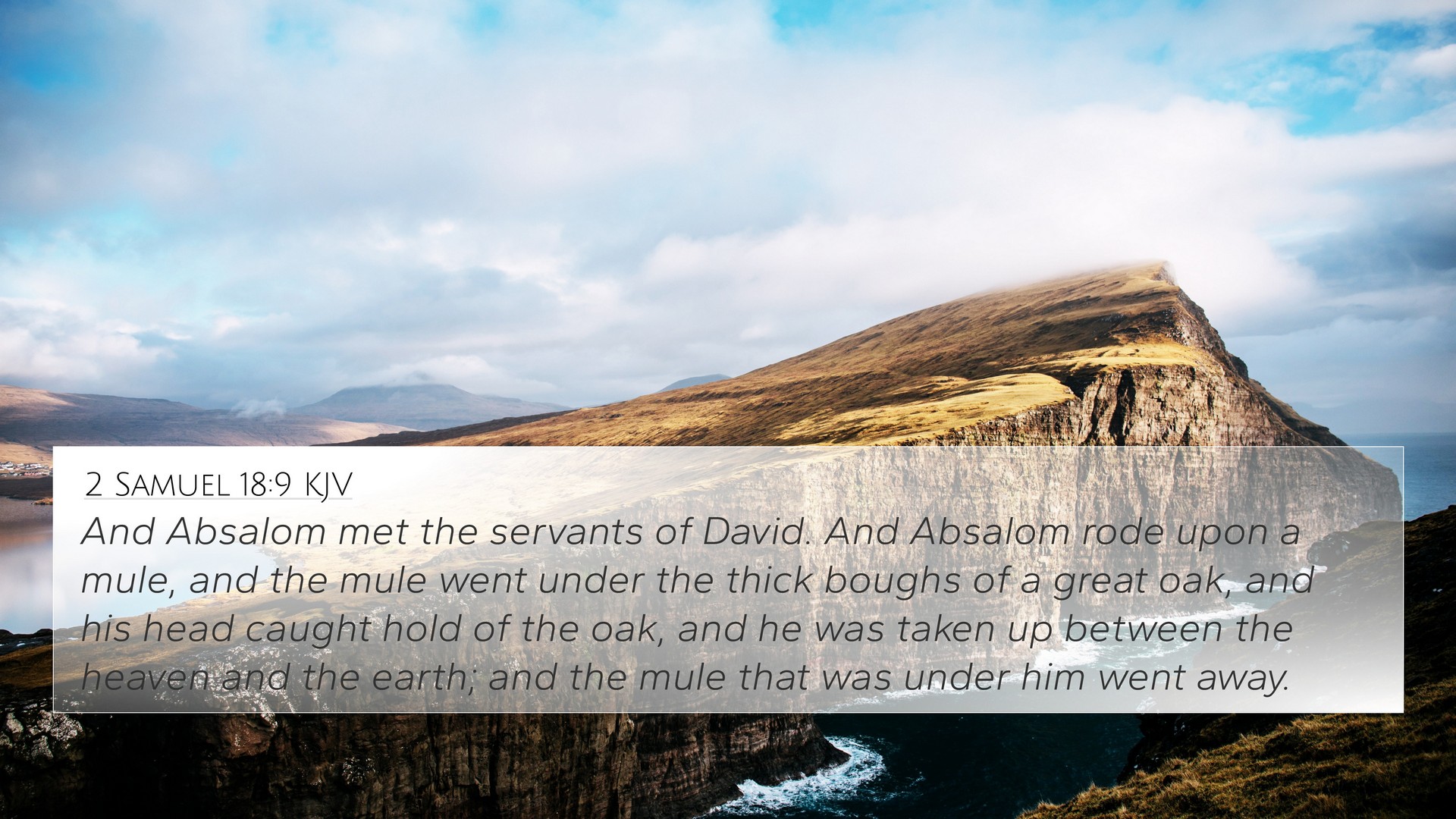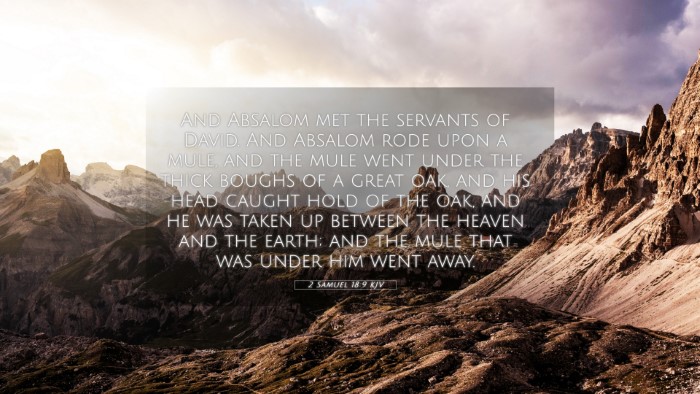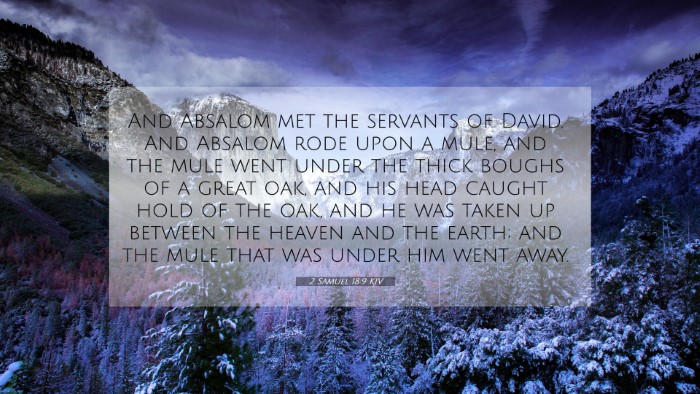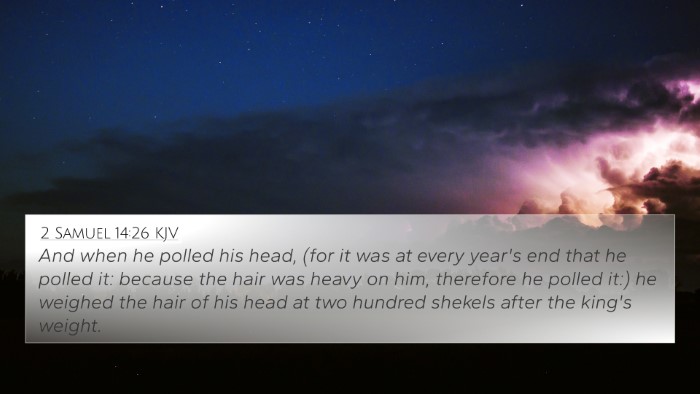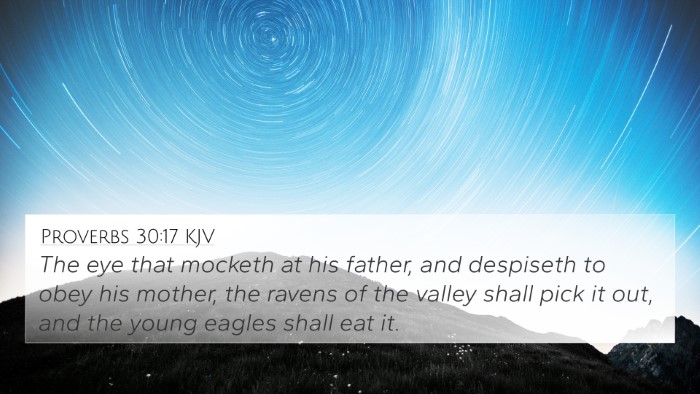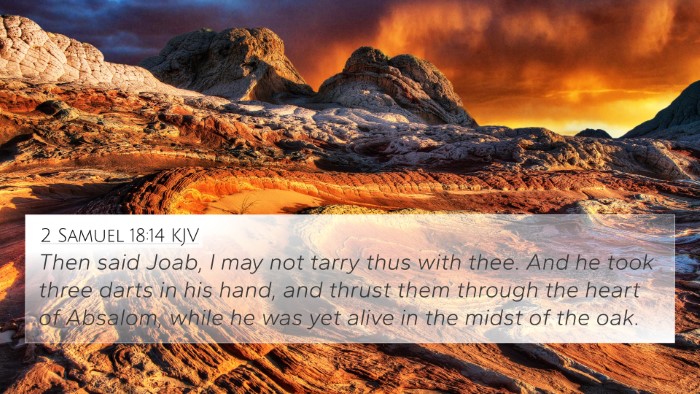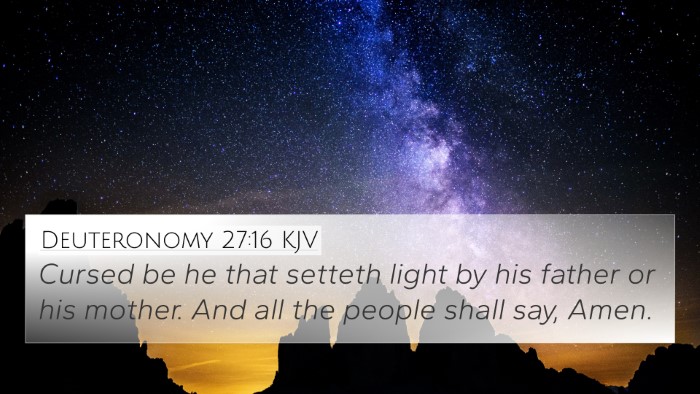Understanding 2 Samuel 18:9
Bible Verse: 2 Samuel 18:9 - "And Absalom met the servants of David. And Absalom rode upon a mule, and the mule went under the thick boughs of a great oak, and his head caught hold of the oak, and he was taken up between the heaven and the earth; and the mule that was under him went away."
Summary of the Verse
This verse narrates a pivotal moment in the conflict between David and his son Absalom during the revolt led by Absalom. Absalom's encounter with David's servants marks his downfall, symbolizing the tragic consequences of pride and rebellion against rightful authority.
Analysis of 2 Samuel 18:9
This verse exhibits several layers of meaning, drawing insights from several public domain commentaries:
-
Matthew Henry:
Henry emphasizes the inevitability of judgment against Absalom's rebellion. His encounter with the oak tree serves as a metaphor for the traps of pride and the consequences of turning against divine order.
-
Albert Barnes:
Barnes highlights the dramatic irony of Absalom's fate. Riding a mule, which signifies a king's modesty, he becomes ensnared in the thick boughs of an oak tree, illustrating how earthly pursuits can lead to unexpected consequences.
-
Adam Clarke:
Clarke discusses the symbolism of Absalom's hair, which was a mark of his beauty and vanity. This incident underscores that which a man may take pride in can ultimately become his downfall.
Key Themes Related to the Verse
From the commentaries, it's observed that the following key themes are woven throughout this verse:
- Pride and Fall: The overreach of Absalom symbolizes how pride often precedes downfall.
- Consequences of Rebellion: The fate of Absalom serves as a reminder of the repercussions that come from rebelling against one's authority.
- The Sovereignty of God: The divine hand is evident as Absalom’s strategies fail despite his efforts.
Connections Between Bible Verses
This verse has several cross-references that can enrich its interpretation:
- Proverbs 16:18: "Pride goes before destruction, and a haughty spirit before a fall." This proverb succinctly resonates with Absalom’s pride and subsequent fate.
- Galatians 6:7: "Do not be deceived: God is not mocked, for whatever one sows, that will he also reap." This reflects the principle of reaping the consequences of one’s actions.
- 2 Samuel 15:1-6: This passage details Absalom's rebellion and the lengths he went to undermine his father King David.
- 2 Samuel 17:23: This verse illustrates the despair of Ahithophel, Absalom's counselor, who recognized his fall and met a tragic end, paralleling Absalom's fate.
- Job 4:8: "As I have seen, those who plow iniquity and sow trouble reap the same." Job's insights connect with the principle evident in Absalom’s downfall.
- Romans 12:19: "Beloved, never avenge yourselves, but leave it to the wrath of God." This instructive verse contrasts the quests for vengeance seen in Absalom’s actions.
- Psalm 7:15-16: "He makes a pit, digging it out, and falls into the hole that he has made." This reinforces the idea that one can fall into their own traps, as seen with Absalom.
Thematic Connections
By cross-referencing the thematic elements present in this verse, one can observe broader biblical narratives:
- Authority vs. Rebellion: The conflict between David and Absalom reflects the tension of human authority as seen throughout scripture.
- Consequences of Sin: The fate of Absalom serves as a cautionary tale about the long-term consequences of sin.
- God's Justice: The divine justice depicted through the events encourages a deeper trust in God’s ultimate plan and timing.
Cross-Referencing Biblical Texts
Understanding this incident provides a foundation for linking Bible scriptures that enhance the reader's grasp of the full biblical narrative:
- Hebrews 12:1: "Therefore we also, since we are surrounded by so great a cloud of witnesses, let us lay aside every weight, and the sin which so easily ensnares us." This connects to Absalom’s pride, as distractions led to his tragic downfall.
- 1 Peter 5:5-6: "Likewise, you younger people, submit yourselves to your elders. Yes, all of you be submissive to one another, and be clothed with humility..." This speaks to the need for humility in contrast to Absalom’s arrogance.
- Luke 14:11: "For everyone who exalts himself will be humbled, and he who humbles himself will be exalted." This New Testament principle echoes the story of Absalom’s vanity and downfall.
Conclusion
In summary, 2 Samuel 18:9 serves as a profound lesson about pride, rebellion, and the sovereignty of God. By examining this verse alongside its related passages, we see a rich tapestry of connections that illuminate God’s justice and the consequences of straying from His path. Through systematic cross-referencing of scriptures, believers can gain deeper insights and understanding of Biblical truths, providing a foundation for faithful living and teaching.
